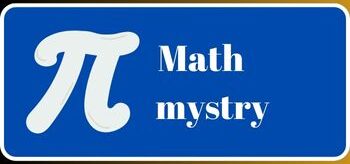Currently Empty: $0.00
Mathematics isn’t just about solving equations—it’s the backbone of some of the most exciting, high-paying, and future-proof careers. Whether you love crunching numbers or just want a stable job with strong growth, math skills can open doors in tech, finance, engineering, and beyond.
If you’re wondering which careers will rely heavily on math in 2025 (and how to get started), this guide is for you.
Data Scientist/Machine Learning Engineer
Why? Companies rely on data to make decisions, and math powers the algorithms behind AI, predictive modeling, and automation.
Key Math Skills:
- Statistics & Probability
- Linear Algebra
- Calculus
How to Prepare:
✔ Learn Python/R
✔ Take courses in machine learning (Coursera, edX)
✔ Work on real-world datasets (Kaggle)
Salary Range: 100,000 100,000–180,000+
Quantitative Analyst (Quant) in Finance
Why? Wall Street and hedge funds use advanced math to model markets, assess risk, and maximize profits.
Key Math Skills:
- Stochastic Calculus
- Probability Theory
- Optimization
How to Prepare:
✔ Study financial mathematics
✔ Learn programming (Python, C++)
✔ Get internships at investment firms
Salary Range: 120,000–250,000+
Cryptographer / Cybersecurity Specialist
Why? With cyber threats rising, encryption and security protocols depend on number theory and algebra.
Key Math Skills:
- Number Theory
- Discrete Mathematics
- Modular Arithmetic
How to Prepare:
✔ Study cryptography (books like Applied Cryptography)
✔ Earn certifications (CISSP, CEH)
✔ Participate in CTF (Capture The Flag) competitions
Salary Range: 90,000–170,000
Actuary
Why? Insurance companies need experts to calculate risks, premiums, and financial stability using stats.
Key Math Skills:
- Probability & Statistics
- Financial Mathematics
- Predictive Modeling
How to Prepare:
✔ Pass actuarial exams (SOA/CAS)
✔ Gain internships in insurance
✔ Learn Excel, SQL, and R
Salary Range: 80,000 80,000–150,000
Aerospace Engineer
Why? Designing rockets, satellites, and drones requires precise calculations in fluid dynamics and physics.
Key Math Skills:
- Differential Equations
- Calculus
- Numerical Methods
How to Prepare:
✔ Get a degree in aerospace/mechanical engineering
✔ Work on projects (NASA internships, SpaceX)
✔ Master CAD & simulation software
Salary Range: 85,000–160,000
Operations Research Analyst
Why? Businesses optimize logistics, supply chains, and efficiency using mathematical modeling.
Key Math Skills:
- Linear Programming
- Game Theory
- Optimization
How to Prepare:
✔ Study industrial engineering or applied math
✔ Learn tools like MATLAB and Tableau
✔ Work on case studies in logistics
Salary Range: 70,000–130,000
Blockchain Developer
Why? Cryptocurrencies and smart contracts rely on cryptographic algorithms and discrete math.
Key Math Skills:
- Cryptography
- Graph Theory
- Algorithms
How to Prepare:
✔ Learn Solidity (for Ethereum)
✔ Contribute to open-source blockchain projects
✔ Study decentralized finance (DeFi)
Salary Range: 90,000–200,000+
How to Build a Math-Driven Career in 2025
- Strengthen Your Foundation—Take advanced math courses (online or in college).
- Learn programming—Python, R, MATLAB, and SQL are essential.
- Gain Practical Experience—Internships, Kaggle Competitions, Research Projects.
- Network—Join math/tech communities (Meetup, LinkedIn, GitHub).
- Stay Updated—Math evolves; follow journals, blogs, and industry trends.
Final Thoughts:
Math isn’t just for academics—it’s a superpower in today’s job market. Whether you’re into finance, AI, or engineering, mastering math can lead to a lucrative and impactful career.
Which of these careers interests you the most? Let me know in the comments!


